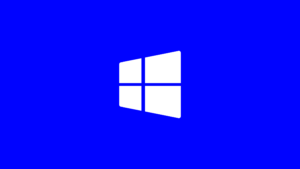I love Ubuntu and its derivatives because of few things. Solid base includes all the firmwares and drivers, along with some non-free drivers and a lot more. Most of my Linux journey, I sailed with many Ubuntu versions and Ubuntu based distributions. If you look at some statistics, Ubuntu sure has the lead in most used Desktop Linux distribution and has the biggest consumer base.
So we can confirm that Ubuntu is the most widely used Desktop Linux, and it’s pretty famous. But, if you follow some social media threads and discussion forums, people sometimes discourage newbies to install Ubuntu stating that it is bad. Somehow Ubuntu is that evil OS lord, who makes the worst distros, even worse than Windows 10!
So, why do folks hate on Ubuntu? Does Ubuntu really sucks? Or do people hate it for other reasons? Turns out, there are many factors, but most of those factors may not be that big of a deal! Let’s first list the things that caused such hatred for Ubuntu and its makers, Canonical.
Vast user base

The more people you have in the party, the more noise you can hear. Ubuntu, as you know, has 20 million users worldwide, and that’s a big user-base. So it is normal that more people will criticize it, or prioritize criticizing Ubuntu compared to other desktop Linux OSs that have far fewer consumers. So it is normal that people will talk more about Ubuntu, and there will be haters.
The Amazon problem

Back then, prior to Ubuntu 18.04, Canonical used to push Ubuntu Desktop with Amazon related apps and search tools built in. Amazon, as you know, is very privacy invasive, and is not a good name for privacy aware peoples.
Ubuntu used to show suggestions with affiliate links to earn commissions from sales and added an Amazon web app icon on the dash out of the box. Although Ubuntu removed it, people still using the older LTS versions still have the Amazon tools and apps.
Ubuntu has telemetry

Ubuntu collects telemetry data about installation and post-installation details, usage data, and system information. They collect this information continuously if you opt in. Data Ubuntu collects are:
- Your country
- System version and flavor
- Hardware information such as RAM, GPU and CPU
- Usage data, etc
Some people definitely have questions about data they collect and wonder if they use it for evil intentions. Obviously, these data can identify a specific computer or device that has opted in.
But! I want to stress that these are the data a software vendor really needs to debug, investigate and set goals for development. Without telemetry, you do not have any idea what your user demographics are, and how you should improve your software. Also, Ubuntu shows its statistics from gathered data publicly. There are few reasons you should not fear Ubuntu Telemetry:
- You can opt out from data collection
- Ubuntu provides clear and non-complex options to disable telemetry
- They do not collect personally identifiable information, only device info gets collected
- Ubuntu is very transparent about it
- Canonical puts targeted effort to improve desktop experience thanks to collected data
So I don’t really think Ubuntu collecting data is that bad.
Ubuntu killed off many lovable things

Before Gnome was the default desktop for Ubuntu, they used Unity. And it was much cooler than other desktops in that time. Ubuntu developed Unity as their flagship and modern desktop. It had web app integration, which I really miss. This feature isn’t just making a shell that loads a specific browser! It was more. You could switch music by Spotify from your Ubuntu sound quick settings. There was also system integration for web apps, such as unread badges and left click menu entries.
The smartest feature for Unity was the unity search panel. It served as a system-wide intelligent search panel, app launcher, and more. Back then, dash was the only you needed for quickly searching up anything system-wide. There were also smart scopes. I don’t know why they killed it off, but you can definitely get the unity as an unofficial flavor!
Canonicals of Canonical

The company behind Ubuntu is Canonical. This is the company that develops Ubuntu and other products. Now, operates with 400+ employees and with 10 million USD revenue. Canonical focuses on providing professional solutions for businesses and corporates. They heavily focus on its major products such as Ubuntu Desktop OS, Ubuntu for servers, and Cloud computing solutions.
I don’t get why people hate Canonical, but some people do not trust Canonical. Now, these people also hate Redhat, so I care little. But I will answer some questions for those who need them. Canonical stopped the development of Unity and Ubuntu touch because of operating cost and low company profit. People loved both products, so obviously some people are still mad at this.
Some people state that Canonical is a for profit organization, you should not believe them. I don’t get these people. Full-blown development costs money and developers do need to get paid to get their life going! Also, Canonical pays people for contributing to its projects. And we do need FOSS based companies to get big and profitable, so we can fight closed-source evil giants.
Canonical removed 32 bit support of Ubuntu for the desktop. There are few reasons I still support this. One is, maintaining an architecture that is abandoned and used by few, increases development cost. Canonical isn’t in the position of still paying money for continuing 32bit support. I reckon that the removal of 32bit libraries was bad for many. But I get it. If you do not have the facility to test 32bit arch, then how can you maintain and test a vast number of libraries? Also, Ubuntu is still maintaining important 32bit libraries crucial for gaming and running Steam and Proton. So this is acceptable.
The Snap
And regarding the Snapd. Canonical’s effort to solve fragmentation was a new package management system called Snap. It’s a cool PM that is used by many distributions. Developers have to develop one package, and then any distribution can install that package, regardless of system variants. So the thing some elites are mad about is the fact that Snap distribution system is centralized. Canonical manages Snap and fetches packages from the central Snap repository.
I do face some major issues with these. First, there are no mirrors, thus installation sometimes takes more time than it should, and then there are no fallbacks or mirrors. Snap packages are also huge for the first time installation. So I often opt to use Flatpak instead of snaps. Because unlike Snap, Flatpak isn’t centralized. But I don’t find any fault in Canonical’s choice with Snap.
Conclusion
The bottom line of this will be that few people hate Ubuntu. Elitists and purists are top and active members of Forums, so you may see them suggesting to drop Ubuntu. But Ubuntu is an open source, and you can change it yourself, so how can it be as bad as Windows 10? Techies push personal beliefs, just like blind fans of Apple and Microsoft. So avoid this toxicity and keep using Ubuntu. There is nothing wrong with Ubuntu or its parent company Canonical.






The author seems to know very little about Ubuntu and open source in general. He claims Ubuntu is an open source distribution, which is a complete lie. The real reason “purists” hate Ubuntu is because Ubuntu is full of proprietary firmware and proprietary drivers. It also comes bloated with software you don’t need, and Cannonical tracks their users. Ubuntu may be the first distro newcomers to Linux try, but they should instead try Debian or Trisquel, which like Ubuntu are user friendly distros with dpkg package management, but which unlike Ubuntu are entirely open source. If you like Arch and software freedom, you should try Parabola. That’s free as in Freedom.
Thank you for your comment. Ubuntu has proprietary firmware and drivers because users need it. It is more of a fault of vendors who don’t want to provide source for their drivers, instead of Ubuntu who just want users to have that driver in Ubuntu. Users just want things to work, and it is necessary to include drivers to make that happen. While you may find it unmatched with your expectation, you can simply choose a distribution that does not contain things you don’t like. But that does not mean Ubuntu is worthy of hate, at-least for this reason. Other problems has been discussed in the article.
I have tried varios releases of ubuntu since 2004. I encountered too many bugs with that distro. The last one I tried was in 2017. Kubuntu was ok. I switched to Linux Mint. Then, a month ago, I dloaded Mint Mate edition and installed it. What a nightmare. It was as buggy as can be!!! So I dloaded cinnamon. That has worked flawlessly. But someone on the Mint team dropped the ball big time. The reason I have always used the Mate edition was because it seemed to run faster and cleaner. A warning o thowe about to install Mint Mate edition. It is buggy.